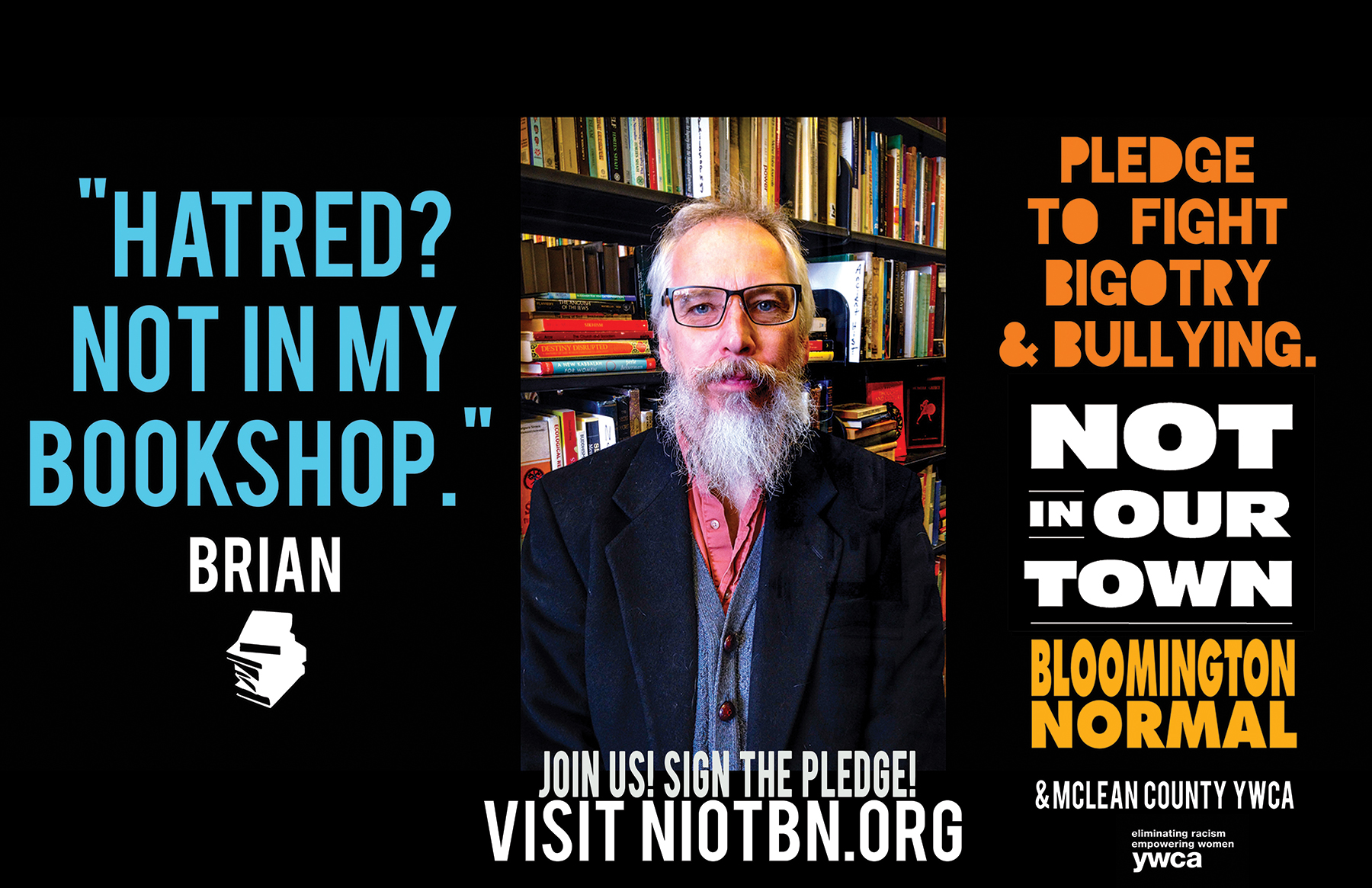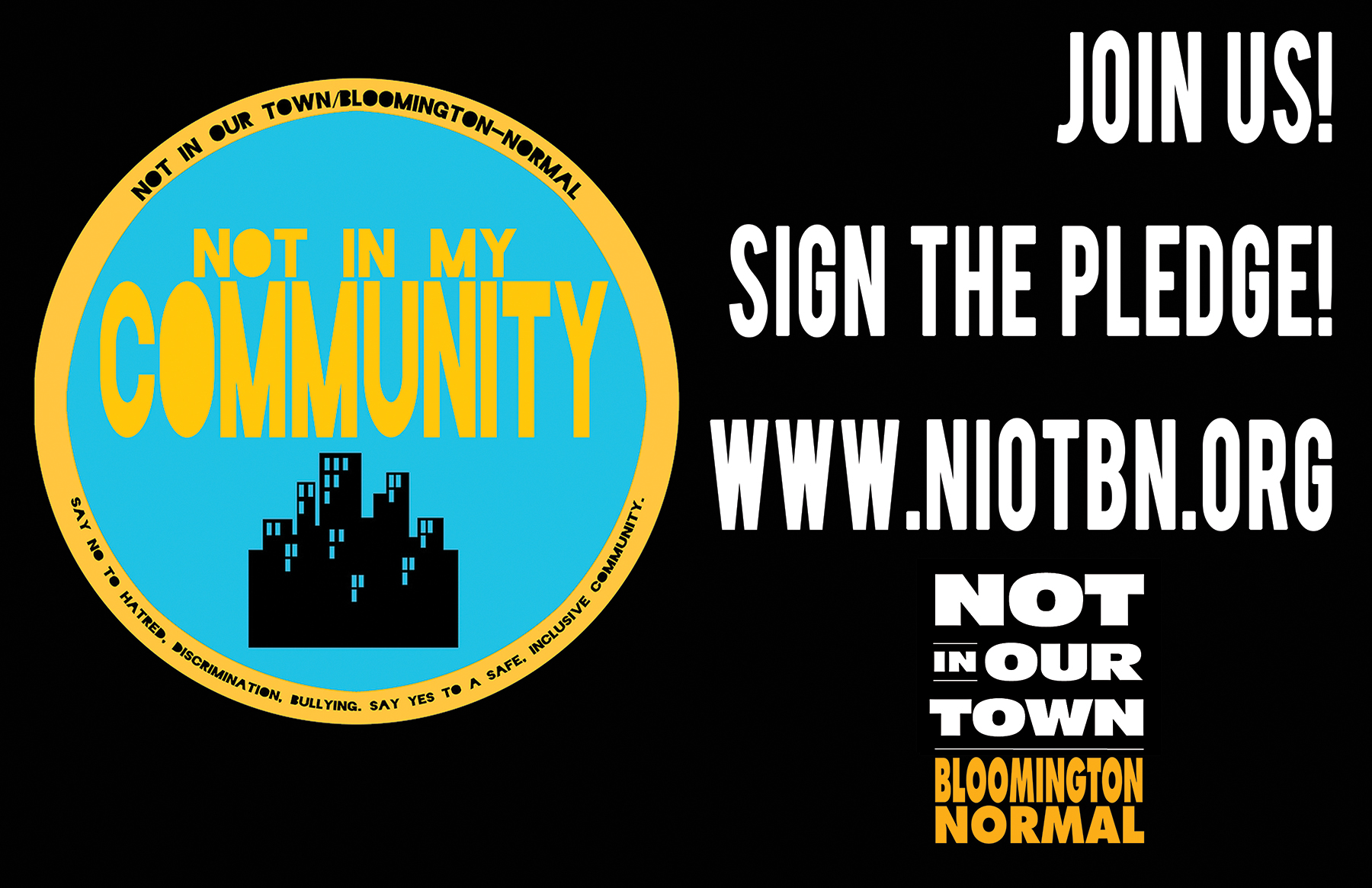ISU senior and mass media major Cory Herman is helming a documentary about NIOTBN’s efforts toward building awareness and helping affect change in the Twin Cities. The yet-untitled project is an end-of-the-year production for his team’s Non-TV Production course, focusing on local non-profit activity.
The team currently is interviewing NIOTBN leaders and volunteers and compiling footage from recent NIOTBN-involved events including the December interfaith vigil in downtown Bloomington, NIOTBN’s participation at the Bloomington Donald Trump visit, last spring’s Breaking Barriers police/community dialogue, and the summer vigil for the Charlestown church shooting victims.
The film – and Herman -- were inspired by a meeting between students and NIOTBN Education Chairman Camille Taylor. As Taylor “passionately” outline the group’s community efforts and Not In Our School’s reach into elementary, junior high, and high school classrooms, Herman and his colleagues quickly realized that the project was “bigger than just ourselves; bigger than a grade,” he related.
“Listening to (NIOTBN’s) vision and its values, it really became a mission to show what Not In Our Town: Bloomington/Normal has done and the positive impact, the positive message that it stands for,” the Metamora student said. “We all looked at each other and said, ‘Wow, this is huge.’
“We want to make sure our film does justice for the organization – to make sure we’re doing everything we can to honor what they’re doing and the people who give the time to make sure that everybody feels safe, that no one feels afraid of being discriminated against or being persecuted for anything.”
The film is set to premiere in a late April screening for the NIOTBN Steering Committee before being submitted for the group to use in its activities. Herman’s production team also includes students David Hohulin, Kyle Bartolini, Sophia Hart, and Kristen Koukol, under the faculty direction of School of Communications Prof. Brent Simonds.
Herman’s own vision and values were forged in part by his parents – his father was a long-time youth pastor, his mother an active community volunteer. The family traveled extensively from church to church, “and my parents told me always to judge people based on who they are – how they act around you, how they act around adults – and to always have the capacity to forgive and to understand,” Herman said.
The Hermans lived for five years in a community a half-hour outside Charleston, S.C., where, according to the student documentarian, many of the residents “were very sweet and truly were looking for change” but others had clung to a “begrudging mentality” with roots in the Civil War era. Herman enjoyed a diverse circle of friends, but the population was divided somewhat by a largely white prep school and a predominantly black public school as well as lingering social sentiments.
“I didn’t realize until looking back, years later, that, wow, what I believed in – what my dad and my mom stood for -- wasn’t necessarily going along with the popular current,” said Herman, whose family returned to the Peoria area 14 years ago. “We never got harassed for it; nothing bad ever came from it. It’s just sobering, looking back and seeing that mentality.”
Herman is slated for a summer internship with a small production studio in Los Angeles. He hopes ultimately to use film, fictional or documentary, not only to entertain but to push his audience to learn and “question” – to challenge previous social perceptions or recognize societal issues and concerns.
“I want to come back and be able to film in Peoria, in Bloomington-Normal,” Herman maintained, however.











